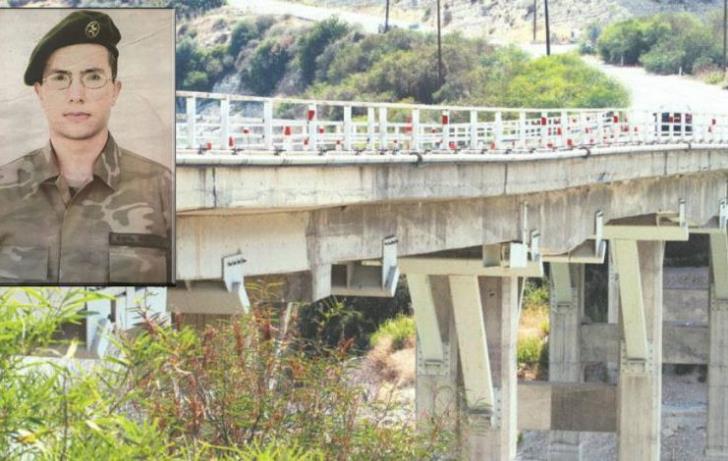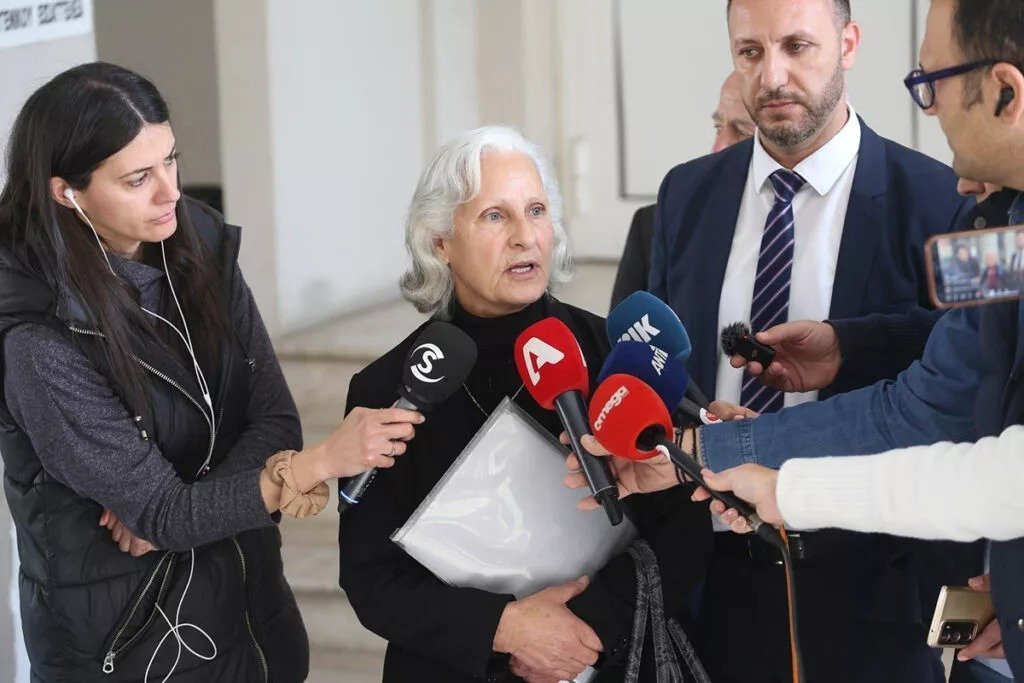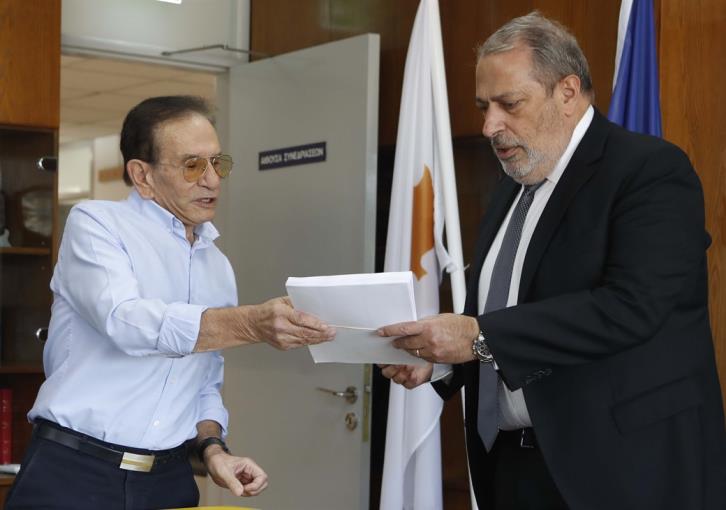For nearly two decades, the Nicolaou family has been engaged in a protracted battle to unveil the truth surrounding the mysterious death of their son, Thanasis.
The tragic event occurred on the morning of September 29, 2005, prompting a series of investigations and legal battles that have spanned courtrooms, forensic examinations, and exhaustive inquiries.
Thanasis Nicolaou, aged 26, was discovered lifeless under the Alassa Bridge around 4 PM, in the Zygos River bed.

What initially seemed like a straightforward case evolved into an 18-year saga of legal complexities, involving multiple death inquiries, forensic analyses, and relentless pursuit of justice by the grieving family.
The ongoing third death inquiry, presided over by Judge Doria Varoushiotou seeks to determine crucial details surrounding Thanasis Nicolaou’s death, including the time, place, and manner of death.
First inquiry finds Nicolaou suicided
The case, initially treated as an unnatural death by the Larnaca Police Station, took a turn during the autopsy conducted by forensic pathologist Panicos Stavrianos. Stavrianos suggested suicide as the cause of death, attributing it to injuries sustained from a fall.
Despite police investigations concluding the death as a result of a self-inflicted fall, the Nicolaou family has persistently contested this narrative.
The family challenged the initial inquiry’s findings, which deemed the death akin to suicide. Their pursuit of justice prompted the involvement of the Supreme Court, which, on December 31, 2008, accepted the family’s plea for a re-examination of the case due to insufficient evidence supporting suicide.
The family, supported by scientific opinions from forensic experts Orfeas Pieridis and Philippos Koutsafis, argued serious scientific oversights by Panicos Stavrianos.
Second inquiry assigns fall from height as cause
Five months later, in May 2009, the second death inquiry commenced under Judge L. Mouyi and concluded in October of the same year.
The verdict concluded that the death of the 26-year-old resulted from injuries sustained in a fall from height. “The testimonies, evidence, and all the information provided can only lead the court to one secure conclusion, which is my finding: the death of the deceased resulted from injuries caused by a fall from height,” the verdict said.
It stated that no testimony emerged to create criminal liability against any individual.
After persistent efforts by Thanasis’ mother, backed with additional forensic reports, she sent letters to various officials requesting a new investigation into the causes of her son’s death.
First mention of possible criminal action
Six years after Thanasis’ death, the Cabinet appointed criminal investigators for the first time in March 2011. The appointed individuals were lawyer Alexandros Souris and former senior Police Officer Andreas Stavrou. Tasked with investigating the case to ascertain the causes of death, they sought the appointment of an independent forensic pathologist.
The request was accepted, and on January 5, 2012, the Cabinet approved the appointment of forensic pathologist Marios Matsakis. The pathologist identified serious scientific oversights by Stavrianos and criticised the way the police investigation was conducted. He asserted that the deceased did not fall from the Zygos Bridge.
The two criminal investigators concluded that despite insufficient witness testimony precisely indicating the causes of Thanasis’s death, “there is sufficient testimony, mainly scientific, from five experts and incidental testimony that contradicts the findings of the second death inquiry and Stavrianos’s position that the death resulted from a fall from height. We believe that the death may be attributed to criminal action, although this cannot be conclusively proven.”
Following this development, on November 3, 2014, the Attorney General instructed the then Chief of Police to further investigate the case to determine the actual causes of death. Subsequently, Constable Dimitra Stavrou was appointed as an inquirer to conduct a new investigation.
The investigation began in 2015 and concluded in 2018. Stavrou characterised the circumstances of death as indeterminate, stating in her relevant report that “it was not feasible to secure testimony substantiating criminal action or the responsibility of a third party.”

Cyprus convicted by ECHR
Following this investigation, the family complained to the European Court of Human Rights (ECHR), alleging that the Republic of Cyprus mishandled the case. The parents argued that the investigation into Thanasis’ death was insufficient.
Fifteen years after his death, the European Court of Human Rights convicted Cyprus, ruling that there was a violation of Article 2 of the European Convention on Human Rights.
Green light for exhumation
After Cyprus’s conviction by the ECHR in December 2020, the family submitted a request to the Attorney General, asking for the exhumation of Thanasis’ remains. The request was accepted, and on December 9, 2020, a court order was secured from the Limassol District Court.
On December 17, 2020, the exhumation took place, followed by the examination of the bones by forensic pathologists Koutsaftis, Tsantiris, Matsakis, and the Republic’s forensic pathologists Sophocleous and Charalambous, pathologist Panicos Stavrianos, and anthropologist E. Charilaou.
Subsequently, an examination of the hyoid bone was conducted by pathologists Emmanouil Agapitos on behalf of the Republic and Dimitra Karayianni on behalf of the family. Agapitos mentioned a “possible injury” in the specific area.
Karayianni attributed the death of the 26-year-old to strangulation.
Following these findings, in October 2021, the Attorney General ordered a new criminal probe into the case, appointing Savvas Matsas, Antonis Alexopoulos, and Achilles Emilianides as investigators. The latter withdrew after a few months.

The two remaining investigators concluded that Panicos Stavrianos committed criminal offences. Additionally, they recommended the prosecution of three former police officers for neglect of duty.
In October 2022, again on the order of the Attorney General, a new investigative team was formed to look into the circumstances of Thanasis’s death. Constable Menelaos Antoniou was appointed as the head, assisted by criminal investigator Antonis Alexopoulos.
From the examinations conducted by the new investigative team, no testimony connecting any person to the death of Thanasis Nicolaou emerged.
Following this, instructions were given for a third death inquiry into the causes of Thanasis Nikolaou’s death, which is currently ongoing.
Read more:





